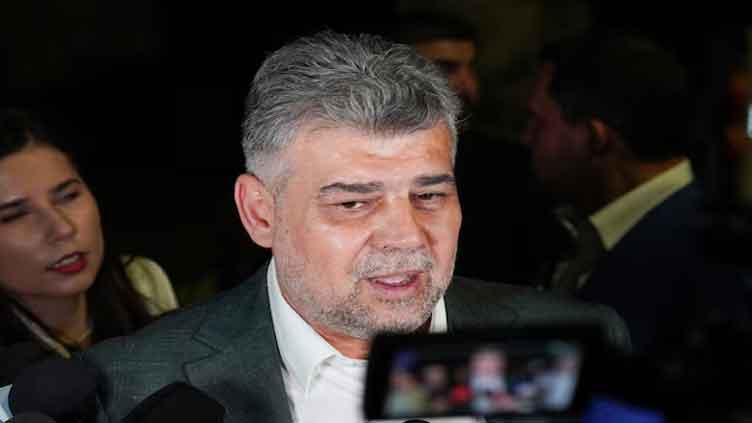Romania PM resigns after far-right wins first-round of president vote

World
Romania PM resigns after far-right wins first-round of president vote
BUCHAREST (Reuters) - Romanian Prime Minister Marcel Ciolacu resigned on Monday, a day after a far-right opposition leader won the first round of the presidential election re-run and his own candidate crashed out of the race.
Ciolacu said his centre-left Social Democrats would withdraw from the pro-Western coalition - effectively ending it - while cabinet ministers will stay on in an interim capacity until a new majority emerges after the presidential run-off.
Hard-right eurosceptic George Simion decisively swept the ballot on Sunday, with some 41% of votes, and will face Bucharest Mayor Nicusor Dan, an independent centrist, in a May 18 run-off. Coalition candidate Crin Antonescu came third.
Although Ciolacu's leftist Social Democrats (PSD) won the most seats in a December 1 parliamentary election, Simion's AUR and two other far-right groupings, one with overt pro-Russian sympathies, won more than a third of the seats to become a clear political force.
The Social Democrats had formed a coalition government with the centrist Liberals and ethnic Hungarian UDMR to help keep the European Union and NATO state on a pro-Western course. A governing majority that cordons off the far right in the legislature cannot be formed without it.
"This coalition is no longer legitimate," Ciolacu told reporters after a party meeting. "The next president was going to replace me anyway, that's what I've read."
Romania's president has a semi-executive role that includes commanding the armed forces and chairing the security council that decides on military aid. The president can also veto important EU votes and appoints the prime minister, chief judges, prosecutors and secret service heads.
Romania already has an interim president until the May 18 run-off. An interim government cannot issue decrees or introduce policies. The country has the EU's largest budget deficit and risks a ratings downgrade to below investment level unless it enforces a decisive fiscal correction.
A Simion victory could isolate Romania, erode private investment and destabilise NATO's eastern flank, where Bucharest plays a key role in providing logistical support to Ukraine as it fights a three-year-old Russian invasion, political observers say.
In an effort to lure scientists to Europe, France and the European Union on Monday announced half a billion euros worth of incentives for researchers.
It would also expand a cohort of eurosceptic leaders in the European Union that already includes the Hungarian and Slovak prime ministers at a time when Europe is struggling to formulate its response to U.S. President Donald Trump.
"The problem now isn't that Romania is in a hard place, but that the European Union is should George Simion win," said Cristian Pirvulescu, a professor at the Bucharest National School of Political Science and Public Administration.
"The anti-European group within the EU will become more substantial, which could even lead to a change of course for (Italy's PM) Giorgia Meloni. The group can become important and it could influence the May 18 Polish presidential election."
SIMMERING ANGER
Sunday's vote came five months after a first attempt to hold the election was cancelled because of alleged Russian interference in favour of far-right frontrunner Calin Georgescu, since banned from standing again.
Simion has said he could appoint Georgescu prime minister should he win. The vote underscores simmering anger among vast parts of the Romanian electorate over high living costs and worries over security.
Prime Minister Ciolacu also said his party will not publicly endorse any of the two presidential candidates, urging people to follow their conscience.


